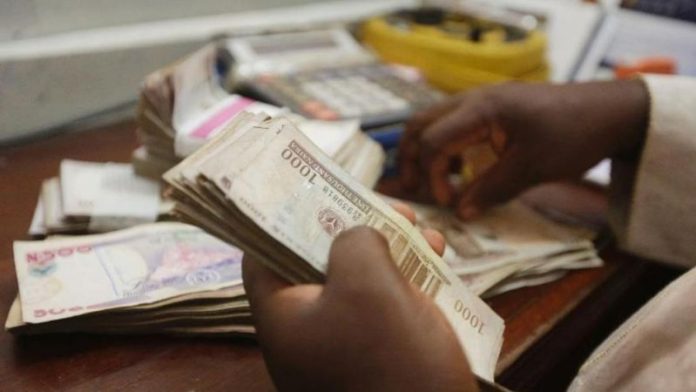The Nigerian naira faced depreciation against the US dollar on Monday, November 6, 2023, closing at N809.02/$1 at the official market. This marks a 4.06% increase from the N776.14/$1 rate recorded on Friday, November 3.
Throughout the trading day, the naira experienced volatility, with an intraday high of N1100/$1 and an intraday low of N720.50/$1, signifying a wide spread of N379.50/$1.
Data from the official NAFEM window shows that the forex turnover at the close of trading amounted to $87.65 million, representing an 11.30% decrease compared to the previous day’s turnover.
However, on the black market, where forex is traded unofficially, the exchange rate saw an appreciation of 16.18%, quoting at N1020/$1. Peer-to-peer traders offered a rate of approximately N1063.50/$1.
CBN’s Two-Pronged Approach
The Association of Bureau de Change Operators of Nigeria (ABCON) issued a warning to those engaging in speculation against the naira. ABCON’s President, Aminu Gwadabe, cautioned that the Central Bank of Nigeria (CBN) was prepared to take measures against currency speculators.
Gwadabe stated, “What is happening in the market and the continuous naira rebounds are the manifestations of the CBN double-edged sword measures of dollar liquidity injection and naira mopping through the instrumentality of interest rate hikes. It is a good development as it is the greatest risk to speculate, hoard, and substitute naira for other currencies.”
The naira had started to recover from its year-long depreciating trend after the CBN began clearing the forex demand backlog in banks.
ABCON emphasized that there has been “panic selling as against panic buying” and urged the central bank to clarify its policies and implement some of their recommendations, including the inclusion of BDCs in the foreign exchange market.
Gwadabe noted that this would enable BDCs to meet the needs of the critical retail sector and contribute to the Central Bank’s foreign exchange rate policy of stability and the elimination of disparities in the overall market. BDCs play a crucial role in the demand measures of the apex bank’s transaction monitoring mechanism, serving clients with corrective and moderating potential.
The exchange rate remains a point of concern in Nigeria, and government efforts aim to stabilize the situation and curb currency speculation in order to bolster the naira’s value.












